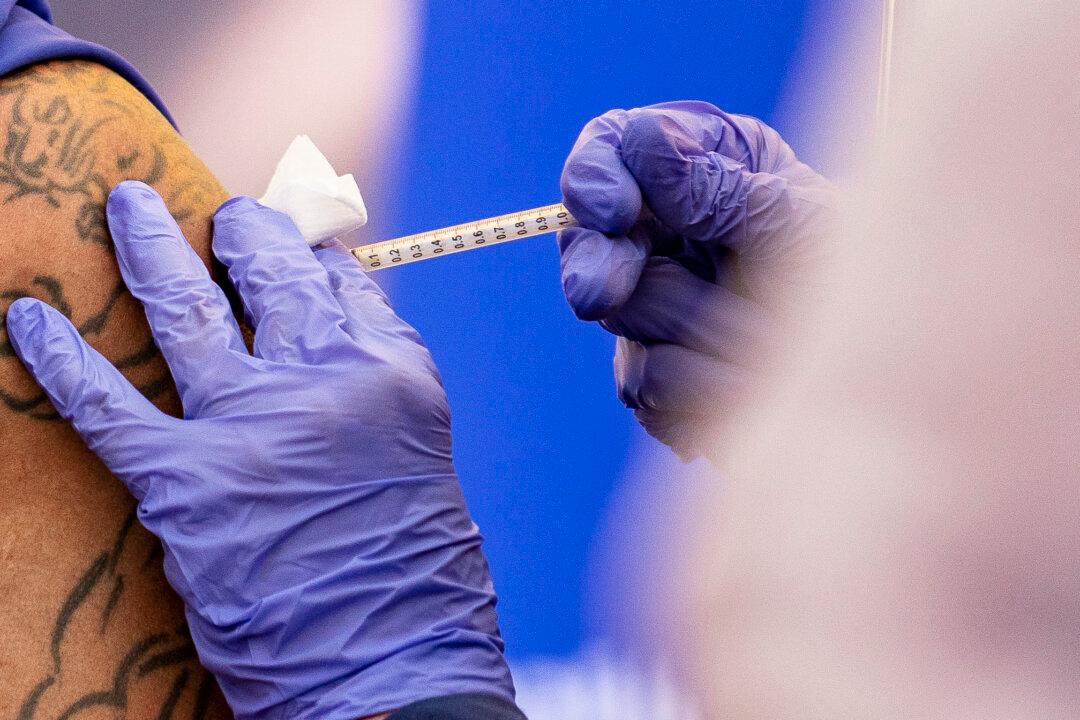The risk of heart inflammation is higher for men as old as 39 after Moderna COVID-19 vaccination than after COVID-19 infection, according to a new study.
Researchers in England analyzed hospital admissions with myocarditis, a form of health inflammation, among the vaccinated between Dec. 1, 2020, and Dec. 15, 2021.





